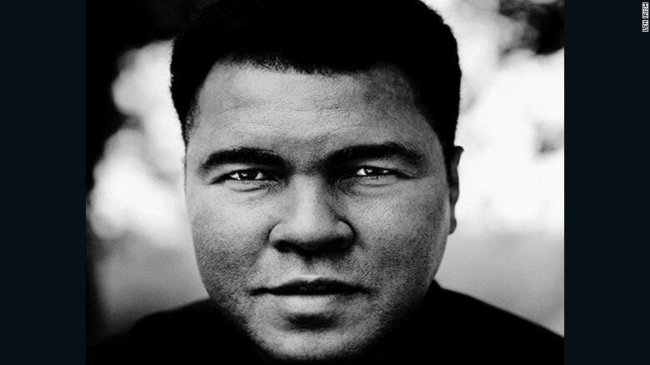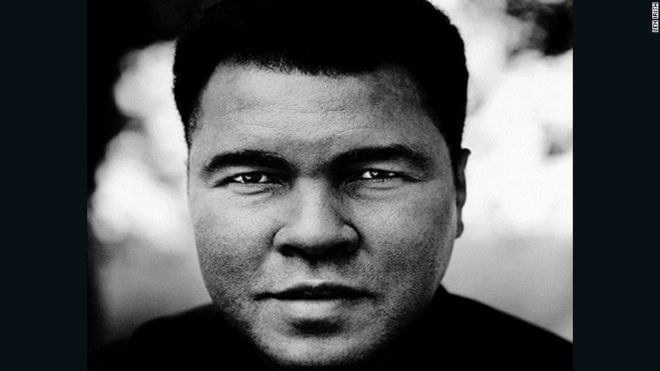So many thoughts. So many questions. So much controversy. So much for us to learn from his actions. Such was the man and his effect on the country. Others have written with far more eloquence than I ever could about the legacy of Muhammad Ali, but from where we are now, we had better pay attention because he had so much to teach us about ourselves and where we are as a culture.
Has boxing been the same since he thankfully retired from the ring in 1980? A rhetorical question, to be sure. Yes, we did have Mike Tyson and Sugar Ray Leonard and Thomas Hearns and Ray Mancini, but those were strictly fighters. Boxers. Sportsmen. Boxing has fallen farther than politics into the realm of parody, and as an entertainment choice is pretty much irrelevant. Yes, there was that fight between those two guys about a year ago that promised a great match up, but all I can remember is that people complained bitterly about how much they had to shell out for the Pay-Per-View for a fight that was decidedly terrible to watch. I could look up the fighters’ names, but I figure that if I can’t remember the latest fight of the century, it couldn’t have been memorable. That never happened for an Ali fight, even the ones that only got shown in movie theaters where the cigar smoke was so thick it’s a wonder that the fire alarms didn’t go off. Ali was vital. He was a compelling star. And you couldn’t take your eyes off him.
And, no, I do not ever remember wondering how much money any of his big fights raised, nor how much anybody had to pay to see them.
Ali also became the template for the political athlete. He paved the way for Bill Russell, Bill Walton, Tommie Smith, John Carlos, Billie Jean King and others (though not countless others, unfortunately) who saw that sports was intricately connected to politics and to world events. Anyone like me who grew up during the Cold War must remember the protestations by Olympic officials and sportscasters who said that sports and politics must not mix, only to be roundly and crushingly contradicted by the black gloves, Munich, steroids and doping, the Apartheid banishments, the boycotts of 1980 and 1984, and a certain hockey game in Lake Placid. Ali took a stand on the most controversial issues of his day, Vietnam and Civil Rights and spoke truth to power. He didn’t worry, at least outwardly, about shoe contracts or his personal wealth. He was banished, then reinstated, and won more titles. Then he became the ambassador to the world. He led, and that’s what’s made it possible for other athletes to stand up to racist basketball owners and to speak out when members of minority groups are shot by police under dubious and outright illegal circumstances.
Ali was a Muslim. Think about that if you need to. Imagine Ali and Kareem and Ahmad Rashad and every other athlete and entertainer who became a Muslim and changed their name doing so today in the age of know-nothing politicians and citizens who are utterly ignorant of the religion. Would he ever get a fight? Would the government put him on the no-fly list? How much twitter shame would he have to endure? As controversial as it was for people to become Muslims in the 1960s and 70s, and it was controversial, today we would see boycotts and, likely, violence. Ali was able to take his conversion and make it all about peace. He used his religious beliefs as the basis for his pacifism and his sense of justice. And he was right; institutional racism was far more of a threat to him and other African-Americans in 1967 than the Vietcong.
Ali was neither universally popular nor loved during his athletic heyday, nor should we expect that he would be. But as we are entering another era of domestic change and upheaval, we do need to remember that all people in all professions need to stand up for what is right and for the equal treatment of all people.
For more, go to www.facebook.com/WhereDemocracyLives or Twitter @rigrundfest









